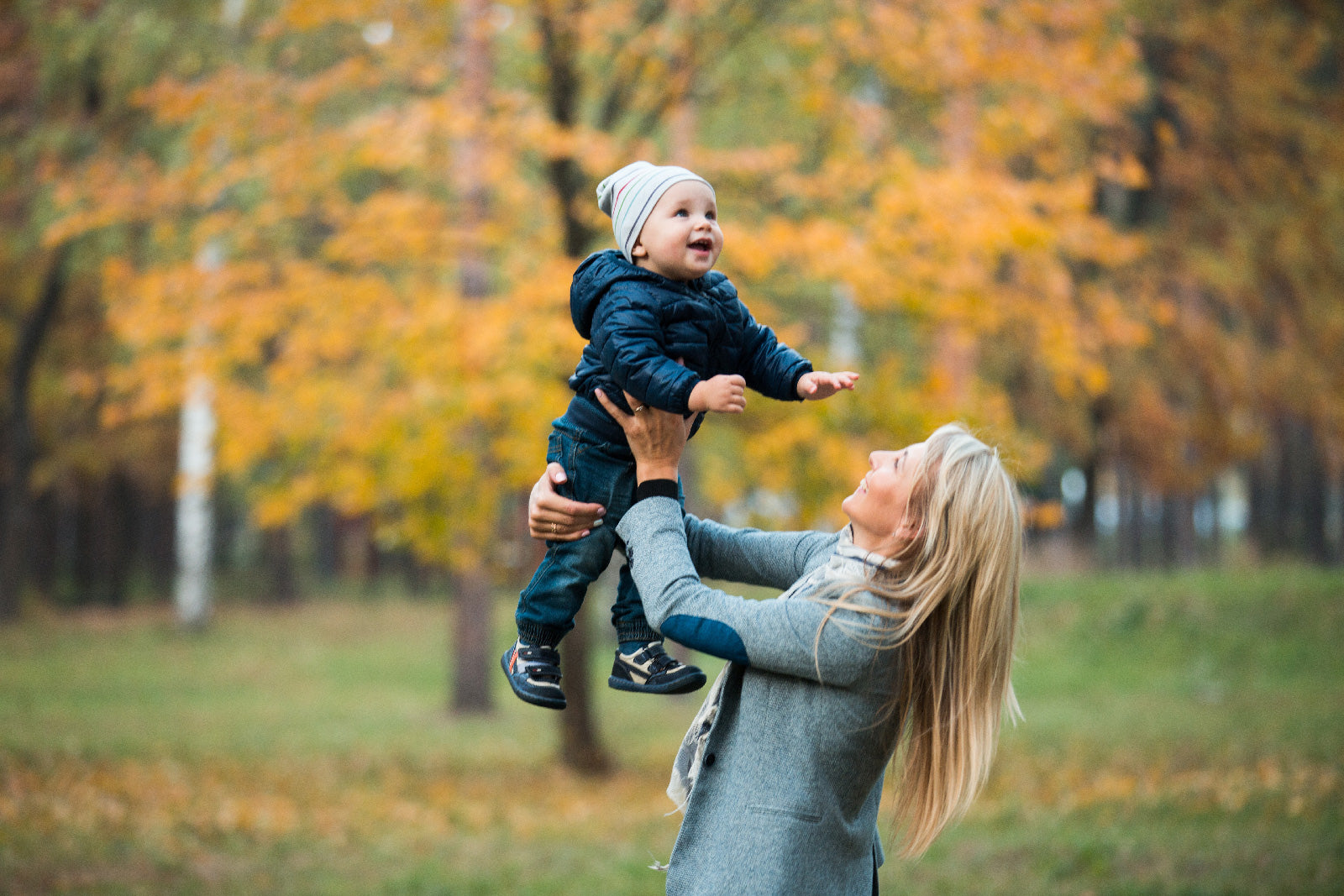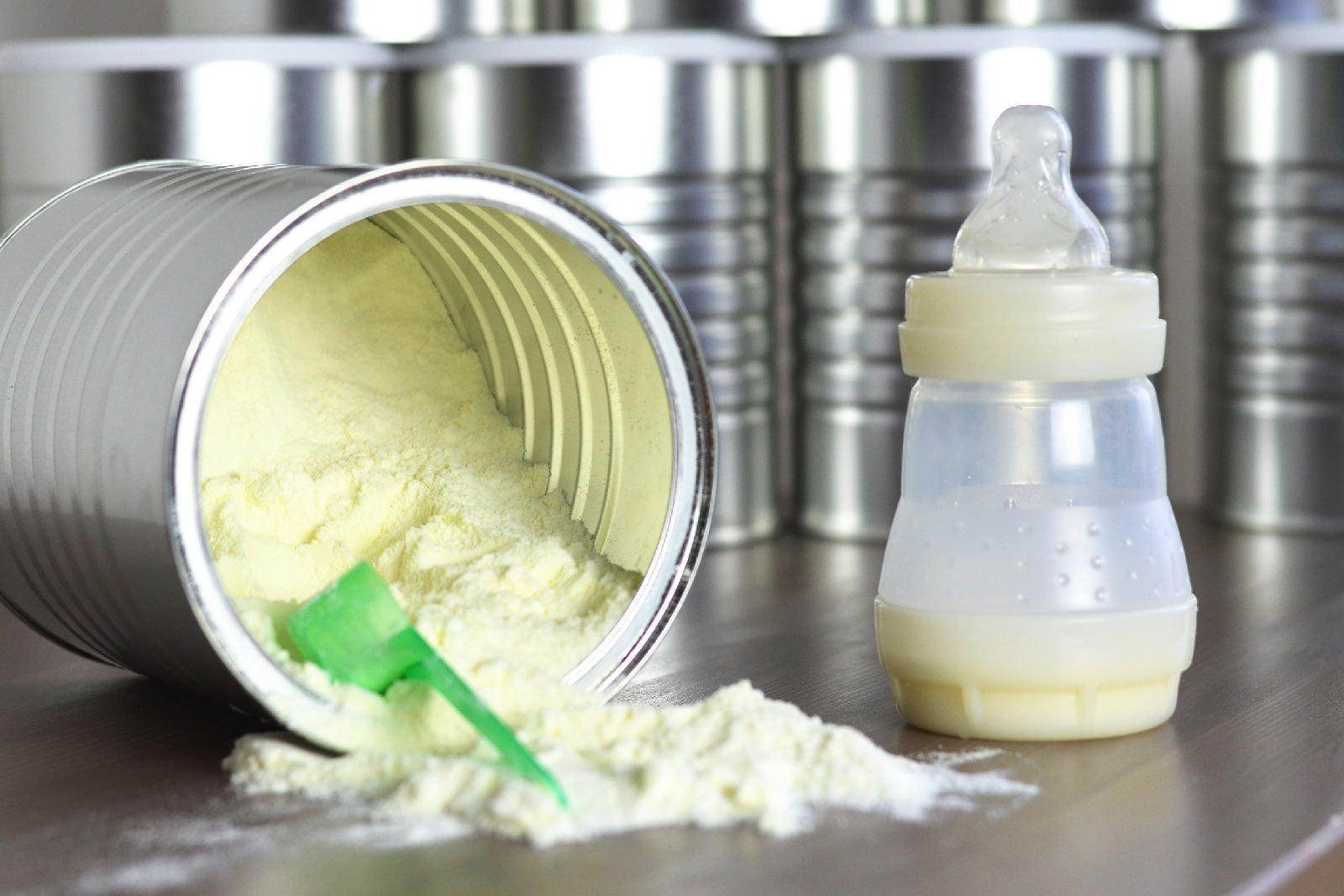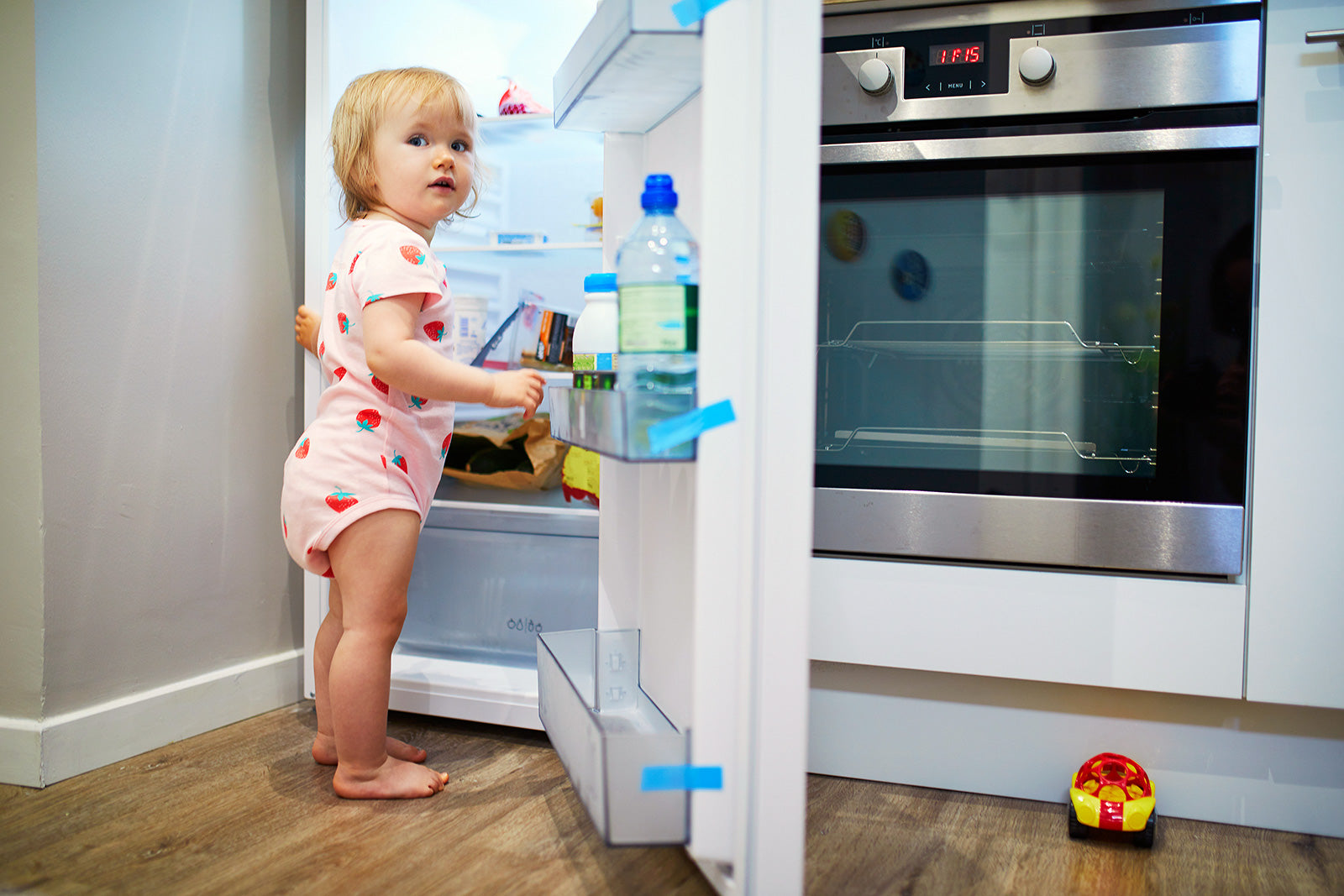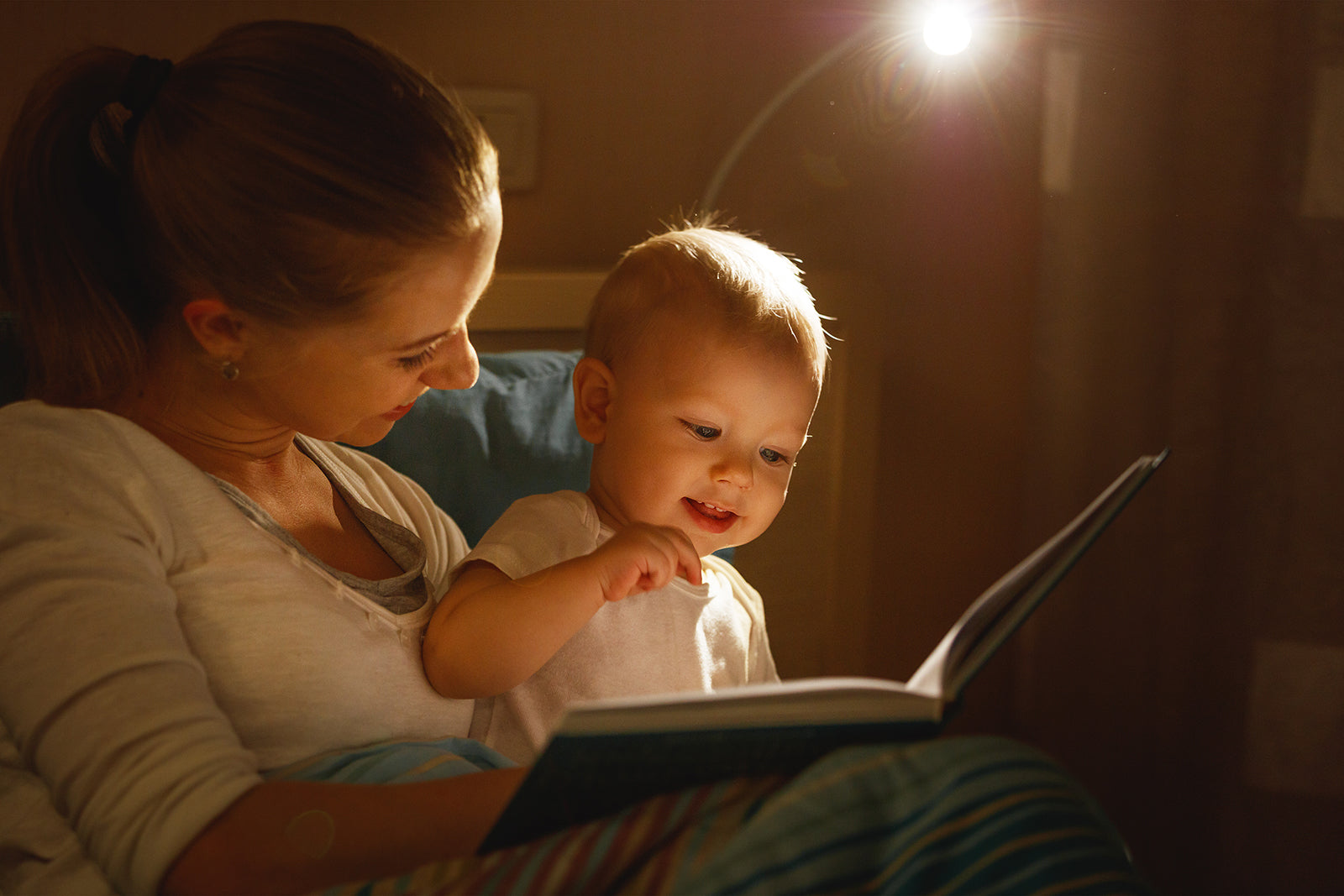Fall Health Tips For Babies: Keeping Your Baby Safe All Season Long

Yes, fall is a time when the leaves change colors, and everything pumpkin-spiced appears. With this comes cool, crisp air, and it's time to learn how to navigate this season's challenges. Protecting our babies from sniffles, fevers, and those mysterious daycare germs can feel like a bit of a balancing act.
But don't worry—we've got your back! We prepared this guide to walk you through some practical fall health tips to help you keep your baby safe during the season. It's always helpful to have a refresher on how to navigate this season without constantly reaching for the tissue box. Rest assured, it has nothing to do with whether you're a first-time parent or a seasoned pro.
1. Boost Their Immune System with Nutrition
When it comes to a healthy and nutritious lifestyle, the saying, "You are what you eat," fits perfectly. Of course, telling your little one that might be a little early, but nutrition plays a key role. Since their immune system is developing, keeping them healthy during fall should be our biggest priority.
Fight off seasonal bugs by giving your baby nutrient-dense foods. Foods rich in vitamins and minerals like Vitamin C, Vitamin D, and zinc are great options for older babies eating solids. Think broccoli, sweet potatoes, spinach, and squash, which are all packed with nutrients. And their perfect fall flavors are a bonus. Whip up a cozy sweet potato puree or mashed carrots—yummy!
But above all, breast milk or formula plays a very important role in taking care of a newborn, especially during the first year.
2. Dress Them in Layers
Dressing your baby in layers is practical, but don't overdo it! Figuring out how to dress your baby when the weather changes every five minutes has to be one of the biggest classic struggles of fall parenting. With the weather switching from chilly in the morning, warm by noon, and then chilly again by evening, what is a parent to do? Simple! Layers, layers, layers.
Thin and breathable layers are an essential part of our fall health tips for babies. This way, you can easily add or remove layers depending on the temperature. The best thing to start with is a soft cotton onesie. Add a long-sleeved shirt or sweater, and finish off with a cozy jacket if needed.
Babies are not efficient at regulating their body temperature, just like adults, so be mindful not to overdress them. Remember, overheating is just as concerning as getting too cold.
A handy rule of thumb is to dress your baby in one more layer than you're wearing.
3. Keep Hydration in Check
You may associate dehydration with the hot summer months, but you'd be wrong. Dehydration can also occur during cooler weather. Your little one may be less interested in fluids when the weather is not as warm, so be sure to offer them small sips of water between feedings. Babies, and especially infants, must stay hydrated to support their immune systems.
While speaking of taking care of newborns, offer milk on demand to babies who are still exclusively breastfeeding or bottle-feeding. For those that have started with solids, you can maintain hydration and provide additional nutrients with fluids like clear soups and broths. You can also offer them small amounts of water between meals. How about incorporating hydrating fruits like apples and pears?
However, a word of advice. Don't fill their tummies up with water before they've had their main meal.
4. Know When to Stay Indoors
Fresh air is always recommended for both you and your baby. But let's face it—there are days when staying indoors might be the better option. There will be days when it's pouring outside, the temperature dips too low, or the wind is howling. On days like these, our fall health tip is a pretty simple one - just stay indoors! Prolonged exposure can lead to discomfort or illness, especially since babies are more sensitive to the cold.
But staying indoors can also be fun if you get creative. Set up a cozy play area with soft blankets, books, and toys. Keep your baby entertained with a little imaginative play while staying snug and warm. Since the weather is gloomy, ensure that you include the longest cuddle time in your baby's routine schedule.
5. Keep Germs at Bay
Babies are curious tiny humans with a knack for exploring the world with their hands and mouths. Keeping them germ-free can be a real challenge. Everything would be easier if they came with little sanitizer belts, right? Unfortunately, they don't, so handwashing is one of the simplest and most effective ways to keep your baby healthy.
Older babies can wash their own hands, with your help, of course. For the younger ones, it's our responsibility to wipe their hands down regularly. This should especially be done before meals, after being outside, or after sneezing or coughing.
Babies enjoy copying what we do, so why not make it fun? Singing a little song or making silly faces while they wash up can be a great activity to do with older babies. A bit of warm water and mild soap will do the trick. And while you are teaching them to wash their hands, don't forget to wash yours as well. You are handling doorknobs and grimy screens all day long, and it's easy to pass germs along unknowingly.
6. Humidity Is Your Friend
With the temperatures dropping, the furnace kicks on to heat up our homes. This is when the air inside can get really dry and get tough on your baby's skin, respiratory system, and even on you. With that in mind, getting a humidifier is one of our most important fall health tips for babies. This could be a game-changer if your little one seems stuffy or their skin looks a little dry.
A cool-mist humidifier adds moisture to the air in your baby's room. This will surely help keep their nasal passages and skin from drying out. However, mold or bacteria buildup can occur, so clean the humidifier regularly.
7. Prepare for Cold and Flu Season
Fall is the season of pumpkin patches, apple picking, and cold and flu viruses. We can't prevent germs from flying around. Still, there are steps we can take to minimize the impact on our tiny bundles of joy.
- Reduce Contact with Sick People: Yes, it's easier said than done, but try to limit exposing your baby to anyone feeling under the weather. If a visitor wishes to see your baby, gently remind them to postpone the visit if they're sick. This will surely save you from a world of sniffles.
- Sanitize the Baby Gear: Regularly include cleaning and disinfecting toys, pacifiers, and other gear in your baby's routine schedule. This should especially be done during the colder months when germs tend to stick around.
8. Getting Enough Sleep
When discussing the immune system's strength, we can't avoid a powerful tool like sleep. This is especially true for babies. But what is the tricky part? Fall can bring about changes to your baby's sleep patterns. It can be due to adjusting to fewer daylight hours or managing the time change when daylight saving ends.
You can keep this under control by sticking to a consistent bedtime routine. Use calming rituals like bath time, a favorite lullaby, or reading a book together to signal to your baby that it's time for sleep.
9. Watch Out for Allergies
Yes, allergies are often associated with spring, but let's not forget that fall can be allergy season, not just cold and flu. The mold that grows on fallen leaves and the pollen from late-blooming plants can trigger allergic reactions in babies. If your little one seems to have a persistent runny nose, watery eyes, or is sneezing a lot, fall allergies might be the culprit.
Talk to your pediatrician if you suspect allergies. They can guide you on safe remedies and help keep your baby healthy through the season.
10. Take Care of Yourself
This may be the most difficult fall health tip, as parents tend to forget that they also need to take care of themselves as well. You may not know this, but babies pick up on our stress and fatigue. This is why it's crucial to remain rested and healthy so we can better care for them.
When possible, try to squeeze in some rest. Do it during your baby's nap time or ask for help from family or friends. Taking care of a newborn is much easier when you're feeling your best.
Conclusion
Fall is, by all means, an excellent time to make cozy memories with your baby. Enjoy pumpkin patch photo ops or warm snuggles indoors—there are endless options. But keeping your little one healthy is always a priority. Using the few simple fall health tips above, you can enjoy the season while keeping your little one healthy and happy.
If you have any questions or need more tips on keeping your baby healthy this fall, check out the rest of our blogs.




